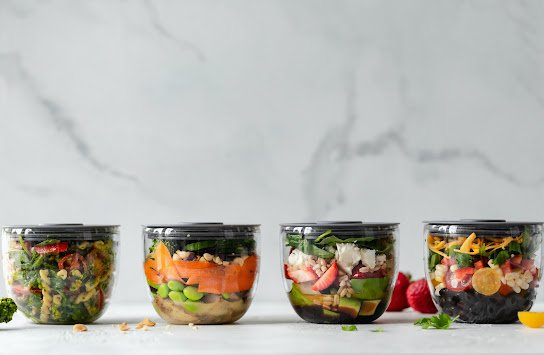How to Create a Healthy and Balanced Meal Plan
Practicing healthy dietary habits is essential for promoting both our physical and mental health, and nutrition is a crucial aspect of wellbeing. Eating a balanced diet can have a profound effect on our energy levels, immunity, and contentment. Due to the availability of so much contradictory information, it can be difficult to construct a healthy and balanced meal plan. However, it does not have to be this way. In this post, we will discuss numerous methods for creating a nutritious, well-balanced meal plan.
Understand Your Nutritional Requirements
Before beginning meal planning, it is essential to understand your dietary demands. Dietary needs vary according to a person's age, gender, level of physical activity, and medical conditions. By collaborating with a licensed dietitian to better understand your nutritional requirements, you can develop a customized meal plan that meets your specific requirements.
Emphasize Whole Foods
A diet that is healthful and balanced should emphasize whole foods. Fruits, vegetables, whole cereals, legumes, lean meats, and fish are a few examples of nutrient-dense whole foods that our bodies require to function properly. In contrast, processed foods such as pastries, chips, and processed meats tend to be high in calories, sugar, and unhealthy fats.
Be Original with Your Recipes
Eating balanced, nutritious meals need not be monotonous. Utilize your creativity when developing recipes and planning meals. Try out various recipes, experiment with various foods and seasonings, and mix things up. When preparing meals, you should include a variety of foods, flavors, and sensations.
Meal Prep
Meal preparation makes it simpler to maintain a healthy and balanced diet plan. Schedule weekly time for meal planning, grocery purchasing, and meal preparation in advance. Meal planning can help you save time, money, and avoid poor food choices when you have a busy schedule.
Consider Your Portion Size
Even nutritious foods can cause gluttony and weight gain when consumed in excess. When preparing your meals, be mindful of portion sizes. Include a diversity of foods in your diet, but be mindful of portion sizes. By using smaller plates and dishes and measuring your meals, you can control your portion sizes.
Do not skip meals
Skipping meals can cause you to overeat later in the day and decrease your energy levels. Ensure that you consume breakfast, lunch, and supper, as well as three well-balanced meals per day. Consider selecting nutritious snacks such as nuts, seeds, fruits, and yogurt in order to maintain your energy levels between meals if you are pressed for time.

Comments
Post a Comment